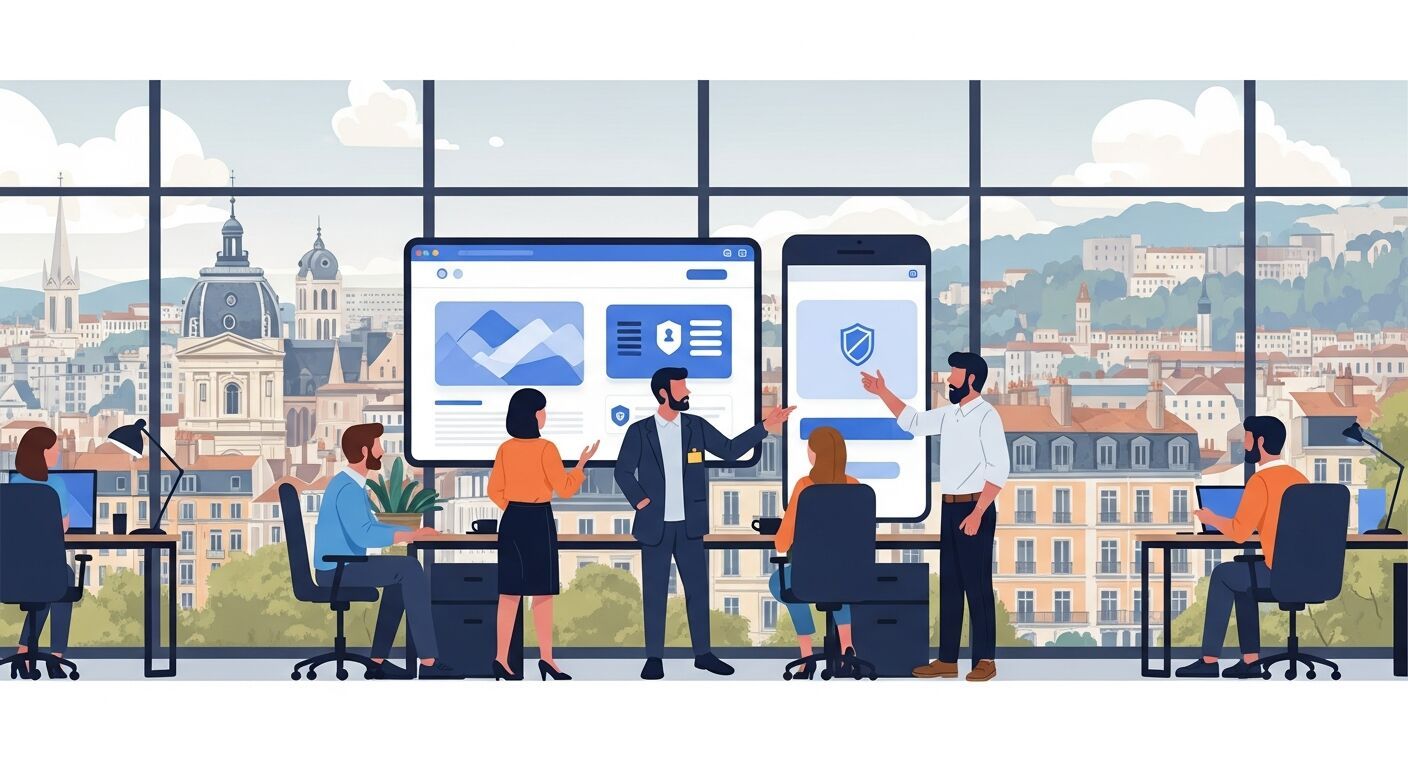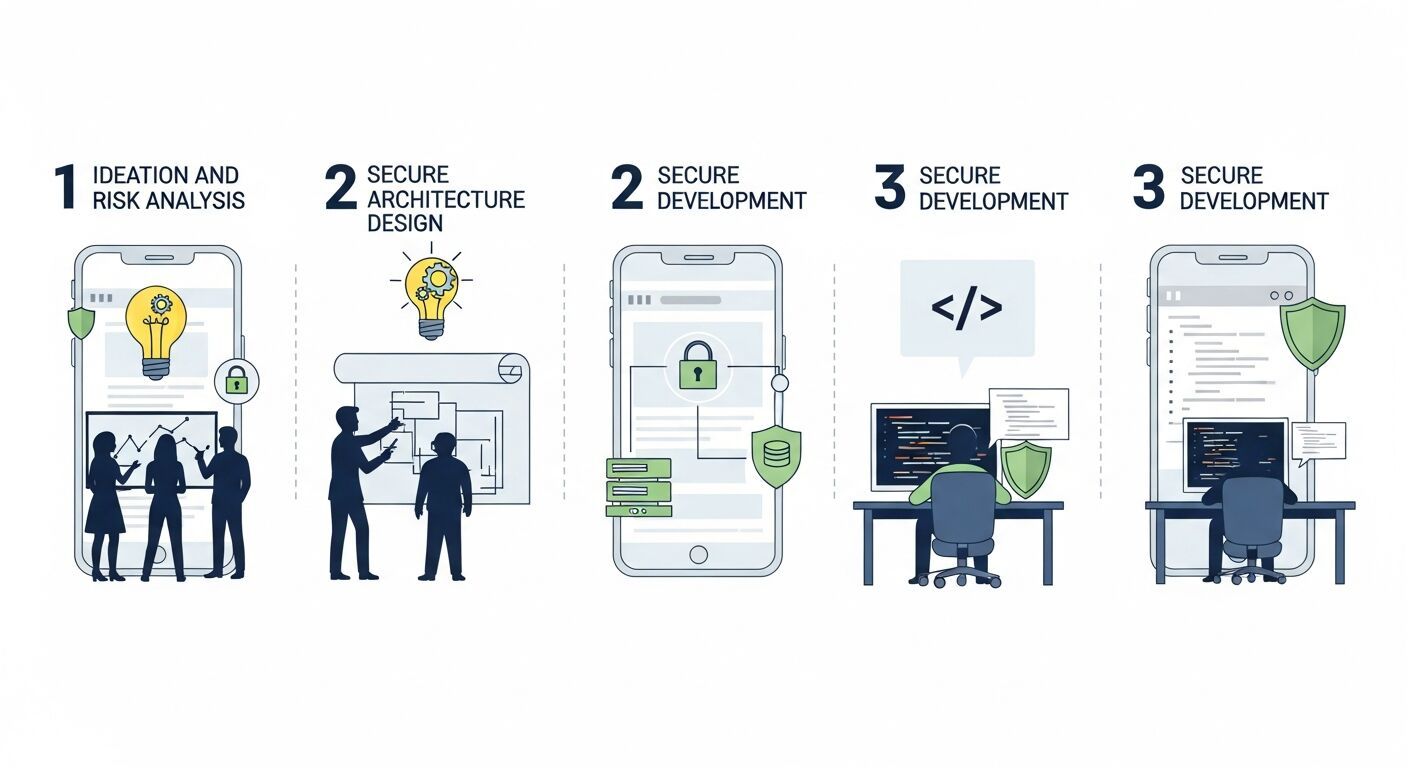In Lyon, as elsewhere, digital projects are multiplying within companies: redesigning a showcase site, launching an online store, developing a business application or a customer portail. Each new digital service opens up new opportunities for growth, but also creates additional exposure to cyberthreats. Lorwhen security is only considered at the end of a project, correctives can become costly, complex to deploy and sometimes insufficient. On the contrary, integrating cybersecurity right from the application design stage ensures the long-term security of digital investments.

Digital projects increasingly exposed to cyber risks
Lyon-based companies are increasingly relying on digital technology for their day-to-day activities: sales management, customer relations, document sharing, production or logistics. Websites and mobile applications are connected to internal systems, third-party services and sensitive databases. Each interconnection represents a potential entry point for a determined attacker. Without a structured approach to security, configuration flaws, development errors or poorly protected accounts can be exploited.
Today, cyber attacks affect all sizes of organization, from very small businesses to major corporations. The consequences can take several formes: unavailability of the merchant site, blocking of a key business tool, leakage of customer data, damage to reputation, or even temporary cessationor of activity. In Lyon's highly competitive ecosystem, a security incident can permanently weaken the relationship of trust with partners and customers. Web and mobile projects must therefore be designed with a level of resilience in line with business challenges.
Regulatory conformity also reinforces this requirement. The protection of personal data, the requirements imposed on certain business sectors or encore future obligations linked to new European directives all call for a more rigorous approach to security. Meeting these expectations means more than simply installing a firewall: it also means ensuring that applications are designed to limit risks right from their architecture.
Integrating cybersecurity into the design process: a necessity
Integrating cybersecurity from the earliest stages of a digital project is part of a "security by design" approach. In concrete terms, this means that security is taken into account right from the scoping phase, and then throughout the application's lifecycle. Even before writing the first line of code, organisation can identify the sensitive data handled, user profiles, possible attack scenarios and the business impact of an incident. These organization elements guide the technical architecture and the choice of solutions.

Lors design, various principles can be applied: separation of environments, fine-tuned management of access rights, encryption of sensitive data, logging of critical actions, limiting the exposure of services to the outside world. These decisions help reduce the probability of compromise and limit the consequences of any intrusion. They go hand in hand with the application of secure development best practices, such as systematic input validation, regular dependency updates and the use of robust authentication mechanisms.
Once the application has been developed, security tests complete the system: code reviews, vulnerability scans, penetration tests targeting key functionalities or exposed interfaces. These checks enable vulnerabilities to be identified before the application goes into production, and correated within a controlled timeframe. They must be planned sufficiently early to avoid a correction calling into question structuring technical choices or fortement delaying delivery. Integrating these stages into the schedule from the outset facilitates overall project management.
Collaborer with a cybersecurity expert in Lyon to make digital projects more reliable
For many companies, it's difficult to have all the necessary cybersecurity, development and architecture skills in-house. Informatic teams and business departments cannot always keep up with the rapid evolution of threats, normes and technologies. In this context, relying on a cybersecurity expert Lyon enables us to benefit from a specialized outside viewpoint, rooted in the regional ecosystem and familiar with the issues faced by SMEs, ETIs and public-sector players.
A cybersecurity specialist working in the Lyon area can support organizations at every stage of a digital project: risk analysis, definition of the target architecture, choice of protection solutions, implementation of technical measures, and development of procedures and response plans in the event of an incident. This expertise complements the work of web agencies, ESNs and development teams, ensuring that security imperatives are compatible with the challenges of user experience and performance.
For general management and business managers, this collaboration helps to priorize investments more effectively. Not all risks can be addressed at the same level; an expert helps to distinguish the critical points that need to be dealt with in priority from those that can be the subject of a progressive ameloration plan. The company thus benefits from a system that is more propored to its real challenges, avoiding both under-protection and technological overkill.
Last but not least, integrating cybersecurity into web and mobile projects right from the design stage buildsorconfidence among users, partners and controlling autorities. By demonstrating that data protection and business continuity have been taken into account in a structured way, the organization validates its risk management approach. For Lyon-based companies, which are increasingly relying on digital technology to differentiate themselves, this trust represents a sustainable competitive advantage.
